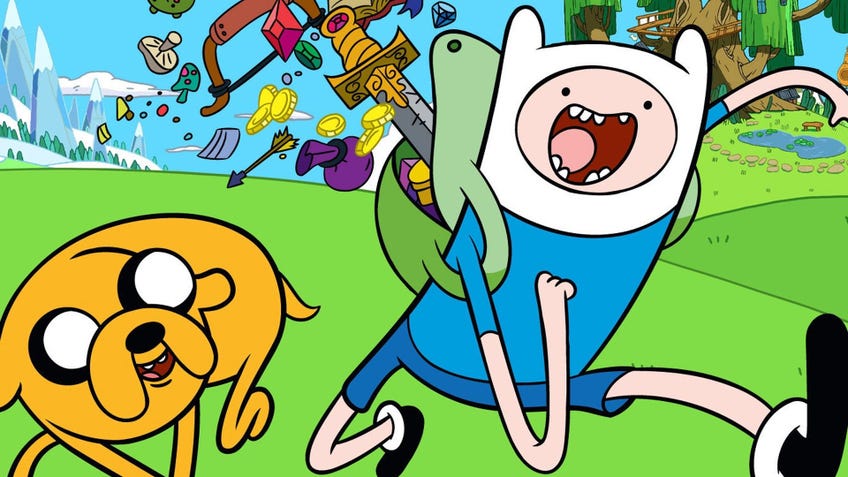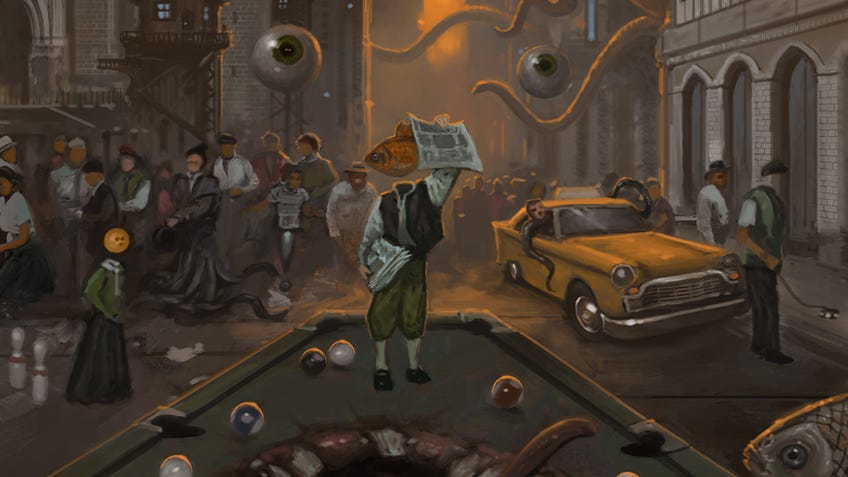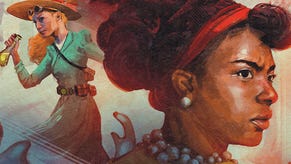The Adventure Time RPG is inspired by one of the weirdest fantasy RPGs ever made
As well as classic D&D and improv storytelling.
The upcoming tabletop RPG based on whimsical cartoon show Adventure Time draws inspiration from some surprising places - including one of the strangest pen-and-paper games of all time.
Speaking to Dicebreaker, designer Matt Fantastic acknowledged the key influence of classic Dungeons & Dragons on the Adventure Time RPG, having played the massively popular fantasy RPG since 1986.
“I grew up in a D&D family,” they said. “It was a big deal when I got to sit down and play with my mum and my uncle and my grandfather and my aunt, and I got to join the game that my uncle ran. So I have almost 40 years of D&D experience and obviously have played lots of other systems and done tons of stuff. D&D has been my favourite game since I was a little kid.”
Fantastic also recalled their time helping to demo D&D’s divisive Fourth Edition at conventions for publisher Wizards of the Coast, comparing the Adventure Time RPG’s flexible approach to dice tests via its Yes And system - in which players can achieve successes using whatever trait they justify to the GM - to D&D 4E’s skill challenges, which allowed players to resolve encounters using their characters’ skills rather than combat abilities. (The Adventure Time RPG will be playable in D&D 5E using a separate supplement.)
“It's not exactly that but there's a bit of that kind of energy,” they said, adding that - despite their own love of D&D - Yes And explicitly looks to offer a far more accessible, story-focused experience: “One of the things that was a big criticism of Fourth Edition was just that Fourth Edition was a really excellent tactical minis game with a little bit of narrative, as opposed to a roleplaying game and storytelling and doing all this stuff, with rules for tactical combat.
“So the balancing act is really just: does it feel reasonable? Does it feel fair? Does it give you that structure to propel it forward? How do we make it not just a pure, ‘Hey, we're just sitting around telling a story together.’ How do we make it more of a game? That's where the Yes And dice come in, in that it keeps you narrative the whole time.”

Fantastic cites both classic and modern RPGs as helping to shape the Adventure Time RPG, saying they “really like a lot of weird little indie zine RPGs and stuff like that” in addition to Dungeons & Dragons.
Influences on the upcoming adaptation also extend outside of roleplaying games, with Fantastic taking inspiration from improv theory - from which the Yes And system borrows its name - and a wider exploration of storytelling.
“That's part of how we're getting to where we are in terms of the system; it's not, like, ‘This is how I'm gonna change D&D,’” they explained. “It's more, if we want to sit around a table and tell a story, how do we do that? So stuff like weird old improv books and things like that are actually just as influential in terms of the way we're developing stuff and building stuff out.”
Even so, perhaps the most surprising influence on the Adventure Time RPG, given the relative lightness of the Yes And system, is Invisible Sun: the hugely ambitious, surrealistic fantasy RPG by Numenera creator Monte Cook regarded for its dense ruleset, strange dreamlike setting and 2018 release in an imposing 42-pound black cube containing four core rulebooks and 1,000 cards - and priced at $250.
“It's interesting because Invisible Sun has a similar sort of looseness to it,” Fantastic said. “There's obviously more going on, but it has a similar sort of [approach in that] it's about how we do the things. It's about how we accomplish this stuff. It's so weird. So, so weird. But, again, that's very Adventure Time. It’s like, how do we deal with reality being this kind of nebulous thing? Which has been inspirational.
“I think Monte Cook is the best RPG designer of all time. Setting aside, obviously, [D&D co-creator] Dave Arneson and setting aside that it needed to get going - obviously that is a huge, huge thing. But once people were making RPGs, I think Monte Cook is the best RPG designer. I'm open to interpretation there. So being inspired by at least one of the best is certainly good.”



